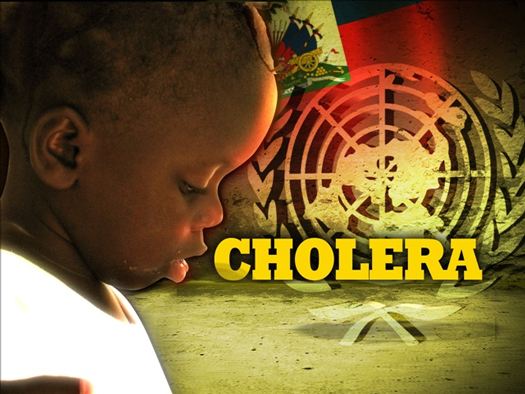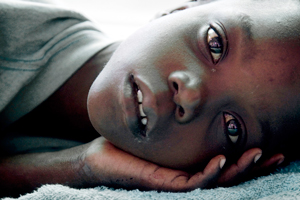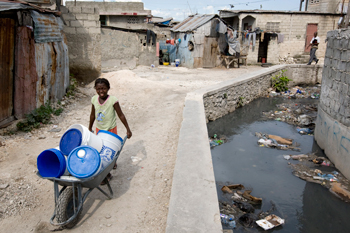
(FinalCall.com) – A judge’s decision to dismiss a lawsuit on behalf of hundreds of thousands of Haitians infected with cholera has not deterred activists who will continue seeking justice.
U.S. District Judge J. Paul Oetken of the Southern District of New York made the ruling last month, dismissing the 2013 lawsuit against the United Nations [Delama Georges, et al, Plaintiffs versus United Nations, et al, Defendants] for introducing cholera in Haiti in October 2010.
Activists vow to continue their fight to bring justice to the hundreds of thousands victimized by the disease, which had not been in Haiti for over 100 years.

According to legal documents, on Jan. 9 Judge Oetken ruled, “Defendants are immune. Accordingly, the case is dismissed for lack of subject matter jurisdiction, and Plaintiffs’ motion is denied as moot.” According to the UN, approximately 9,000 Haitians have died, while nearly 700,000 have become infected.
The judge further stated the “charter of the UN states that the UN “shall enjoy in the territory of each of its Members” such privileges and immunities as are necessary for its purposes.” In 1946 the world body adopted the Convention on Privileges and Immunities of the UN, which was entered into force with respect to the U.S. in April 1970. Some legal analysts say the same document requires the organization to make provisions for appropriate mechanisms for settlement for claims that arise from its missions. According to Judge Oetken, the UN would have to waive its immunity for the case to go ahead.
“We won’t stop fighting until the UN cholera stops killing Haitians, Mario Joseph, counsel for the plaintiffs said in a statement.” Other activists vowed the same thing. “As an attorney we stand in the position you cannot have an injury without a remedy,” said Erzili Danto of the Connecticut-based Haitian Lawyers Legal Network.
“We are going to keep fighting on this,” said Brian Concannon, executive director at the Boston-based Institute for Justice and Democracy in Haiti, a party to the lawsuit. His group will appeal the judge’s ruling, he said.
On Jan. 12, a spokesperson for UN Secretary-General Ban Ki-moon said the organization “welcomed” the decision. The spokesman’s office did not respond to a Final Call request for comment. The UN has maintained that soldiers involved in MINUSTAH, the peacekeeping mission in Haiti were not responsible for bringing cholera to the Caribbean island of nine million.

However, documentation by credible scientists and journalists argued that peacekeeping troops from Nepal, carrying the disease “inadvertently” but “negligently” dumped cholera-infected sewage into the Artibonite River, the largest river in Haiti and one of the nation’s main water sources. The U.S. Centers for Disease Control and Prevention also said there was strong evidence that the Nepalese peacekeepers were the source.
The UN continues to claim that the scientific evidence is “inconclusive”. In 2012, Mr. Ban introduced a 10-year cholera reduction campaign worth $2.2 billion, but reportedly only 13 percent of that amount has been raised.
In late October 2014, Doctors Without Borders reported 2,000 new cholera cases. In a statement, the organization said Haiti’s health system is still facing shortages of funding and human resources; and that authorities are displaying a lack of preparation for outbreaks that are known and foreseeable.
“Of course Haitians are dying from cholera, the UN never had a legitimate reason to be in Haiti since 2004– there as an occupying force on behalf of the U.S.,” argues Ms. Danto. There was never a civil war and Haiti has the lowest crime rate in the Caribbean, she added. “The best use of the cholera lawsuit was a good way to tell the real story of what was happening in Haiti,” Ms. Danto said.
“We see that Black lives don’t matter in the U.S. so, why should they matter in Haiti,” she added.
Brian Concannon, executive director of the Connecticut-based Institute for Democracy and Justice in Haiti who led the fight in the U.S. to get the lawsuit into federal court said the ruling made him angry, frustrated and disappointed. The UN has absolute immunity, he added. “We continue to question the priorities of a UN that has spent $3 billion to keep a peacekeeping force in Haiti, when there hasn’t been any civil war,” Mr. Concannon said. “Hypocrisy beyond belief with the UN saying they have to obey the rule of law.”
Dahoud Andre of the Committee to Mobilize Against Dictatorship in Haiti told The Final Call the real issue in bringing the cholera lawsuit is the lack of Haitian sovereignty. “We did not support bringing charges against the UN in a U.S. court,” said Mr. Andre. “Secondly, this is not an issue of how much a Haitian life is worth. We argue that there would not be cholera in Haiti if we had sovereignty, because the Constitution does not allow for foreign intervention,” he said.
His group is working to get a truly democratic government elected, so there would be real power in the hands of the people to take the cholera case into a Haitian courtroom.
“This issue is not just about Haitians; it is about Black people not having political and military power to force nations to do the right thing,” said Mr. Andre.












